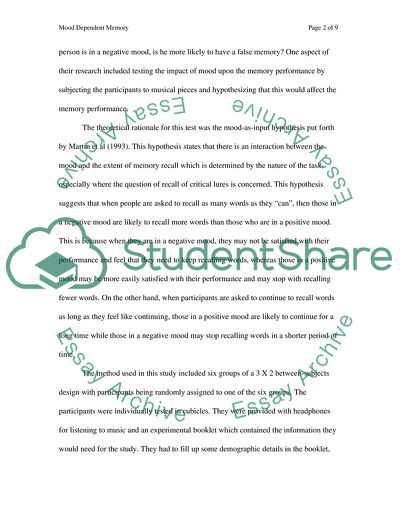Cite this document
(Mood Dependent Memory Literature review Example | Topics and Well Written Essays - 2203 words, n.d.)
Mood Dependent Memory Literature review Example | Topics and Well Written Essays - 2203 words. Retrieved from https://studentshare.org/psychology/1711628-mood-dependent-memory
Mood Dependent Memory Literature review Example | Topics and Well Written Essays - 2203 words. Retrieved from https://studentshare.org/psychology/1711628-mood-dependent-memory
(Mood Dependent Memory Literature Review Example | Topics and Well Written Essays - 2203 Words)
Mood Dependent Memory Literature Review Example | Topics and Well Written Essays - 2203 Words. https://studentshare.org/psychology/1711628-mood-dependent-memory.
Mood Dependent Memory Literature Review Example | Topics and Well Written Essays - 2203 Words. https://studentshare.org/psychology/1711628-mood-dependent-memory.
“Mood Dependent Memory Literature Review Example | Topics and Well Written Essays - 2203 Words”. https://studentshare.org/psychology/1711628-mood-dependent-memory.


